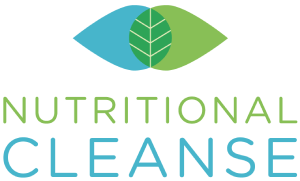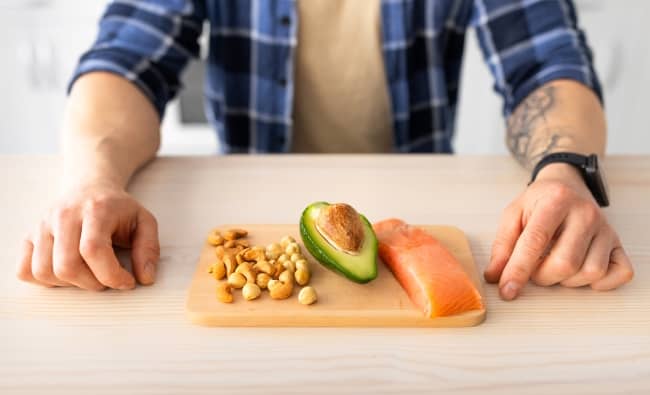How To Lower Your Cholesterol Naturally
Cholesterol.
Maybe you’ve been told to avoid eggs because of it.
Or maybe you’ve tried to cut back on it because you heard it causes heart disease.
Or maybe you’ve wondered what the difference is between HDL and LDL cholesterol.
There has been a good deal of controversy and confusion surrounding cholesterol but science is sure about one thing: high cholesterol can have negative health effects.
If you are curious about natural ways to lower your cholesterol, research points to several lifestyle factors that may help. Here, we’ll detail several natural ways to lower cholesterol so you can keep working toward your wellness goals.
What Is Cholesterol?
Cholesterol is a waxy substance produced by the liver. We also obtain cholesterol through our diets, mainly from dairy, poultry, and meat products. Cholesterol is moved through the blood by lipoproteins (low-density lipoproteins and high-density lipoproteins).
Contrary to popular belief, cholesterol isn’t automatically bad. Cholesterol plays crucial roles in the body, including keeping cell walls flexible, helping in the production of several hormones, and building cells.
However, too much cholesterol can lead to health problems.
What Is the Difference Between HDL and LDL Cholesterol?
Many people get confused about the difference between HDL and LDL cholesterol. Low-density cholesterol (LDL) is considered the bad kind.
Excess LDL cholesterol can build up on blood vessel walls, narrowing the space where blood can flow and increasing the risk of various health conditions.
High-density lipoprotein (HDL) is the ‘good’ kind that helps transport cholesterol away from blood vessel walls.
A little trick for remembering the difference between HDL and LDL cholesterol is to imagine the “H” in HDL cholesterol standing for Happy.
How to Lower Your Cholesterol Naturally
Following are tips that may help naturally increase your HDL cholesterol and/or lower your LDL cholesterol.
1. Eat Heart Healthy Fats
Reducing your saturated fat intake may help decrease your levels of low-density lipoprotein (LDL) cholesterol.
Further, opting for monounsaturated fats vs. saturated fats can help decrease LDL cholesterol and increase HDL cholesterol.
Monounsaturated fats may help prevent cholesterol from oxidizing. When this process occurs, free radicals can react with oxidized cholesterol and lead to clogged arteries.
Here are a few examples of the best sources of monounsaturated fats:
- Olives
- Olive oil
- Nuts (pecans, walnuts, almonds, cashews, macadamias, pistachios, etc.)
- Nut butters
- Avocados
2. Consume Omega-3 Fatty Acids
Research indicates that polyunsaturated fats may help reduce LDL cholesterol.
Omega-3 fatty acids are considered a particularly beneficial polyunsaturated fat. To increase your intake of Omega 3s, try incorporating more fatty fish into your diet.
Fish with the highest levels of Omega 3s include:
- Sardines
- Wild-caught salmon
- Mackerel
- Deep sea tuna (albacore, bluefin)
- Herring
Plant-based sources of Omega 3 fatty acids include tree nuts and flax seeds.
3. Exercise Regularly
Along with improving stamina, helping you maintain a healthy weight, and providing mood-boosting benefits, exercise can also increase good cholesterol and reduce bad cholesterol.
Even short bursts of exercise can offer benefits. Try sneaking physical activity into your day by:
- Riding your bike or walking to work, if possible
- Using your lunch hour to take a walk
- Finding a group aerobic class you love
- Parking further away
- Taking the stairs instead of an elevator
- Finding an exercise buddy to help keep you motivated and accountable
While low-intensity exercise can raise good cholesterol, exercising at a moderate to higher intensity can make the exercise even more effective in improving cholesterol levels.
4. Avoid Trans Fats
Artificial trans fats are made through a chemical process of adding hydrogen to liquid vegetable oil to make it more stable. The result of this industrial process is known as partially hydrogenated oil.
These fats are solid at room temperature, with a texture that adds appeal to cookies, pastries, and margarine spreads. Trans fats also increase the shelf life of packaged goods.
The issue is that the body processes trans fat differently than other fats, causing it to decrease HDL cholesterol and increase LDL cholesterol.
Although The Food and Drug Administration (FDA) banned trans fats, it is still important to pay attention to ingredient labels.
Food manufacturers are allowed to request FDA permission to include partially hydrogenated oils in their products if they cannot effectively reformulate a product.
To be sure you are avoiding trans fats, check the ingredient label. A product can contain up to 0.5 grams of trans fat and still advertise “0 grams of trans fat” on the label! Check the ingredient list and avoid products that include “partially hydrogenated oil”.
5. Pay Attention to Alcohol Use
Excess alcohol use can harm the liver and have a negative impact on heart health and blood pressure. Too much alcohol can also negatively impact cholesterol levels.
It is important to follow alcohol recommendations and drink in moderation.
6. Eat Enough Fiber
There are many proven benefits of fiber, including a reduction in the amount of cholesterol that gets absorbed into your bloodstream.
Fiber also feeds probiotics, healthy bacteria in the gut that can decrease LDL cholesterol.
Some of the best dietary sources of soluble fiber include:
- Oatmeal
- Brussels sprouts
- High fiber snacks
- Flaxseeds
- Peas, lentils, and beans
- Apples
- Pears
- Broccoli
- Bananas
- Raspberries
- Squash
- Asparagus
- Artichokes
7. Avoid Smoking
Smoking increases the risk of health conditions in a variety of ways, including how the body processes cholesterol.
Smoking can increase bad cholesterol, decrease good cholesterol, and limit the body’s ability to move cholesterol to the liver.
Cigarettes also contain acrolein, a compound that can get absorbed into the blood and increase LDL levels.
8. Maintain a Healthy Weight
Excess weight can put you at risk of high cholesterol levels. For every 10 pounds of extra weight you carry, the body can make up to an extra 10 mg of cholesterol a day.
If you are above your recommended healthy weight, losing weight can reduce your LDL cholesterol and raise your LDL cholesterol. Ask your doctor for advice on a healthy weight for you and a balanced weight loss plan that matches your goals.
9. Consider Whey Protein
The whey protein in dairy products may offer support for healthy cholesterol levels. When taken as a supplement, whey protein has been proven to reduce LDL cholesterol.
For an easy way to increase your intake of whey protein, consider a high-quality, dairy-based meal replacement shake.
10. Consider Supplements for Healthy Cholesterol Levels
More research is needed, but supplements to consider if you are trying to lower your cholesterol include:
- Fish oil
- Psyllium
- Coenzyme Q10
- Fiber supplements
- Plant Sterol Esters (proven to help reduce cholesterol absorption)
Looking for More Wellness Tips?
Cholesterol serves many important roles in the body but can also lead to serious issues if LDL cholesterol gets too high. Adding certain lifestyle changes to your routine, including regular physical activity and heart-healthy foods, may help reduce LDL cholesterol and increase HDL cholesterol.
Always check with your healthcare provider for the best course of treatment for you or before adding any new supplements to your routine.
For more health and wellness tips, follow our regularly updated blog, or feel free to reach out to our team of experts. We’re always happy to answer questions or offer product recommendations based on your weight loss, health, or wellness goals.












